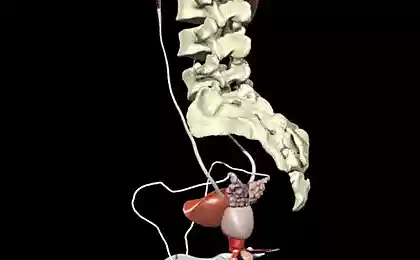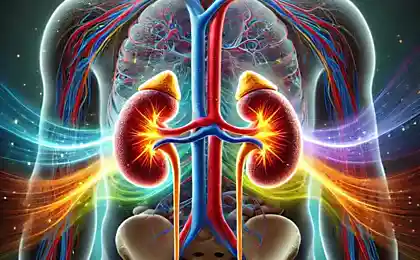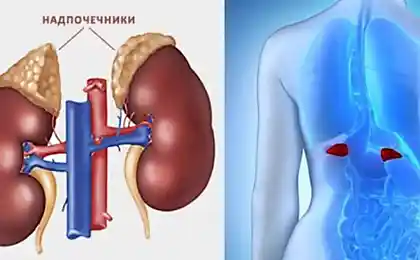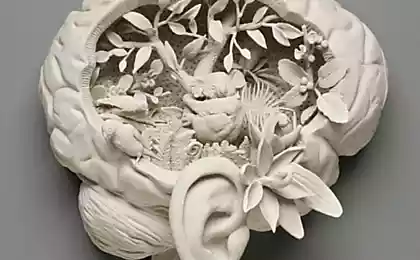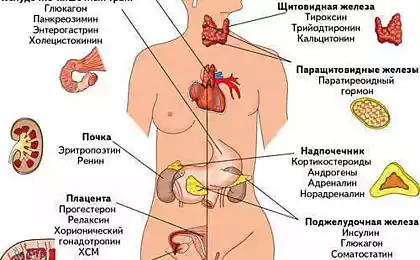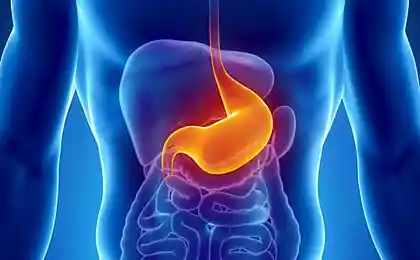246
Emotional intelligence and adrenal dysfunction

Emotional intelligence (EI) has long attracted the attention of those who seek personal effectiveness, emotional well-being, and healthy interpersonal relationships. But we are not always aware that the ability to control our thoughts and feelings can affect not only psychological comfort, but also specific physiological processes in our body. One such striking example is the link between emotional intelligence and adrenal function.
In terms of physiology, the adrenal glands are responsible for the production of a number of hormones critical to the body’s response to stress. These include cortisol, adrenaline and norepinephrine. These substances affect many body systems - from the cardiovascular to the immune. When a person is in a state of constant emotional tension, the adrenal glands begin to work in an enhanced mode. Over time, this “emergency regime” can lead to dysfunction and a number of health problems.
But why is emotional intelligence so important for regulating these processes? The fact is that the ability to consciously manage emotions, understand your stressors and cope with them allows you to keep the body in a more balanced state. That is, competently developing emotional intelligence, we indirectly participate in the regulation of hormonal processes that are initiated in the adrenal glands. In this article, we will look at the nature of such interaction and give a number of recommendations on how to maintain both in balance.
Main part
1. Adrenal glands and stress: a brief overview of physiology
The adrenal glands are small but extremely important glands located above the upper poles of the kidneys. They consist of the cortex and brain layer, each of which is responsible for the production of different groups of hormones:
- Cortisol. Stress hormone, which helps the body adapt to extreme conditions. With short-term stress, cortisol is useful - it mobilizes energy, enhances reactions. Problems begin when stress becomes chronic and cortisol levels are consistently high.
- Adrenaline and noradrenaline. These catecholamines are responsible for the fight or flight response, preparing the body for physical activity: increase heart rate, pressure, increase blood flow to the muscles.
- Aldosterone. Regulates the water-salt balance, indirectly affecting blood pressure.
2. Emotional intelligence as a tool of regulation
Emotional intelligence is a set of skills associated with awareness, understanding and managing one’s own emotions, as well as the ability to recognize the emotions of others. It includes:
- Self awareness. The ability to notice your emotional reactions, to catch what internal or external factors cause them.
- Emotional management. The ability not to suppress emotions, but also not to allow them to disrupt behavior. It is a delicate balance between expressing feelings and maintaining self-control.
- Motivation. A deep motivation for self-support and aspiration to goals that doesn’t collapse at the first problems.
- Empathy. The ability to understand the emotional state of others, which is important for positive social interactions.
- Social skills. Ability to communicate effectively, resolve conflicts and interact in a team.

3. Chronic stress and "adrenal exhaustion syndrome"
Although the term "adrenaline fatigue" (or "adrenal exhaustion syndrome") is not always recognized in academic medicine as an official diagnosis, there is a certain logic in it. When we are constantly under stress (especially if we do not know how to cope with it), the adrenal glands function at the limit, releasing more cortisol and adrenaline. Over time, there may be a stage of “burnout”, when the body ceases to respond adequately to stressors.
Symptoms of this condition may include:
- Chronic fatigue
- Sleep problems (insomnia or superficial sleep)
- Frequent pressure surges
- Anxiety, irritability
- Decreased immunity
4. The subtleties of the trigger
Why does the ability to manage emotions (or, conversely, the inability to do so) affect the adrenal glands directly? We are talking about the "hypothalamic-pituitary-adrenal axis" (HPA-axis). This axis is a key regulator of the body’s response to stress:
- hypothalamus It picks up information about the environment and stress levels, sends signals.
- pituitary responds to these signals by secreting adrenocorticotropic hormone (ACTH), which “orders” the adrenal glands to produce cortisol.
- Adrenal glands They release hormones for emergency adaptation.
5. Developing Emotional Intelligence: Adrenal Health Tips

If you want to strengthen both your emotional intelligence and “protect” your adrenal glands from chronic stress, you can stick to several strategies:
- Self-awareness through diaries: Make a habit of writing down your emotions and the situations in which they arise. Diary analysis helps to capture patterns: what exactly causes anxiety, anger or apathy?
- Mindfulness practices (mindfulness): Meditation, breathing exercises, walking without gadgets. All of these techniques develop here-and-now skills and reduce impulsive responses to stressors.
- Developing empathy and communication: An open conversation about experiences with friends or a psychologist helps you not to close yourself in negative emotions and teaches you to solve conflicts more constructively.
- Moderate physical activity: Sports stimulate the release of endorphins, improve the regulation of stress hormones, and discipline the mind and body.
- Adequate rest: Full sleep (7-8 hours a day) and the ability to relax on the weekend improve the recovery processes, giving the adrenal glands the opportunity to “reset”.
6. Diet and lifestyle with increased stress load
If the adrenal glands are already “overloaded”, it is worth thinking about a more holistic approach to health, including diet and physical habits:
- Balanced nutrition: in the diet should be present proteins, complex carbohydrates, healthy fats (nuts, avocados, olive oil). Excess sugar intake can exacerbate spikes in insulin and cortisol.
- Vitamins and trace elements: Magnesium, B vitamins (especially B5 and B6), vitamin C can support adrenal function. However, it is advisable to consult a doctor before taking complexes.
- Moderate caffeine use: excess coffee causes the adrenal glands to produce more adrenaline, which in chronic stress only increases the load on the body.
- Regular physical activity: It is important to find a balance - intense fitness or running can be beneficial if you do not turn them into an additional source of stress (especially with already depleted adrenal glands).
7. When to see a specialist?
If you notice chronic fatigue, worsening mood, sleep problems and a constant feeling of anxiety, it makes sense to see a doctor (endocrinologist or therapist) and, if necessary, a psychologist. Often in the complex therapy of adrenal dysfunction, both biochemical and psychoemotional factors are taken into account.
Some people live for years in a state close to “adrenaline fatigue”, blaming everything on trivial laziness or “stressful projects”. In reality, you can improve your quality of life if you notice your body’s signals and learn how to manage your emotional responses.
Conclusion
Our body is a single system in which each element interacts closely with others. The adrenal glands responsible for the production of stress hormones are sensitive to the emotional background and the level of psychological stress. Emotional intelligence, in turn, allows a person to consciously control reactions to stress, understand their feelings and manage them so as not to reboot the endocrine system.
The development of emotional intelligence is not a tribute to fashion, but a real necessity in the modern world, where the number of stressful situations, information flows and interpersonal conflicts is only growing. Thinking in time about a harmonious attitude to your emotions, you will not only establish communication with others and increase your effectiveness, but also maintain a balance in the work of the adrenal glands.
Of course, if you already have serious manifestations of fatigue, anxiety and somatic symptoms, it is important to consult with specialists. But prevention based on emotional self-regulation skills can play a crucial role in how strong your long-term health will be. Take into account the signals of your body, listen to the inner voice and develop emotional intelligence – and then the adrenal glands, like the whole body, will work in a harmonious rhythm.
7 truths that are important to understand in time
Alpha Men and Omega Men: Why Women Are Better With Omegas

